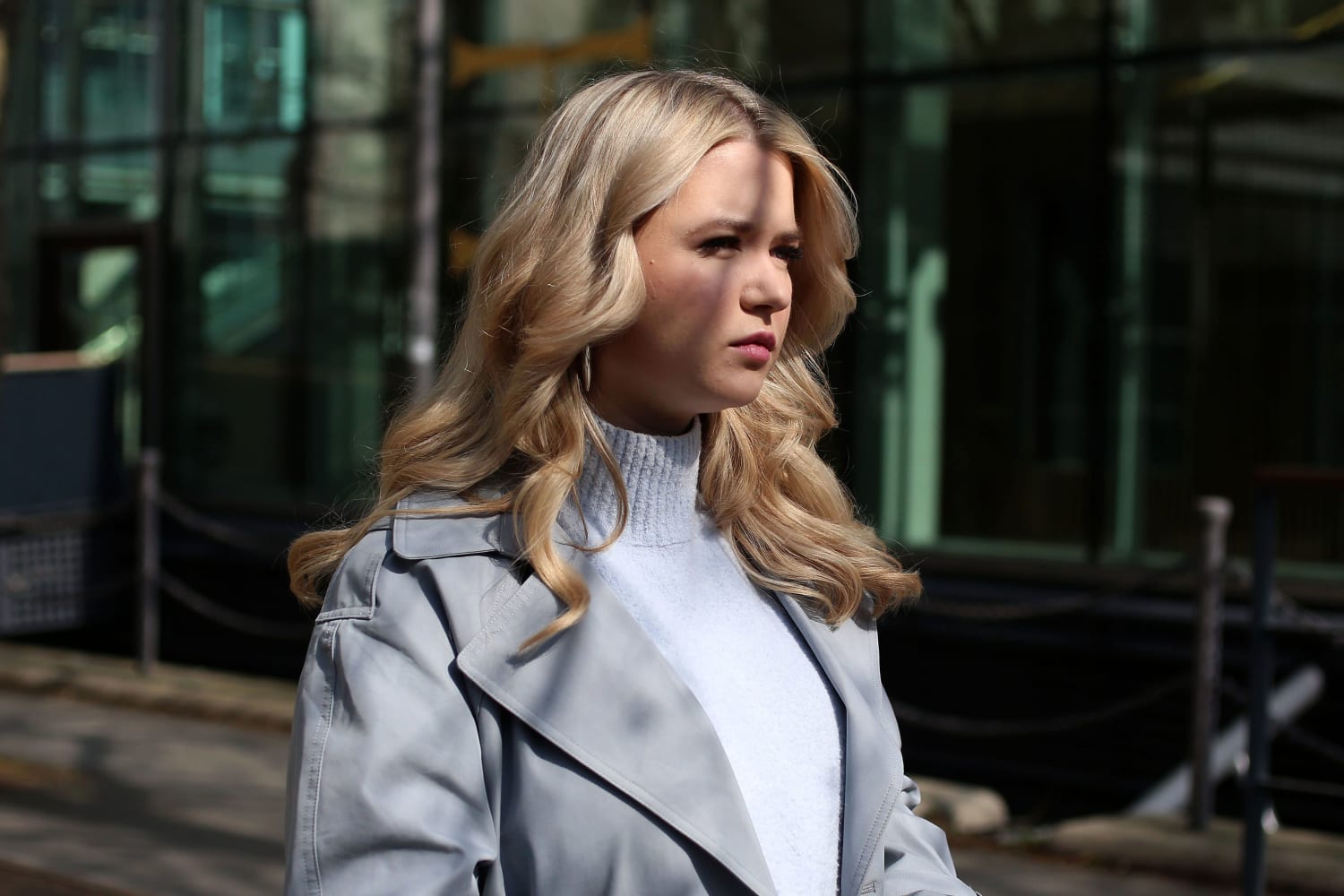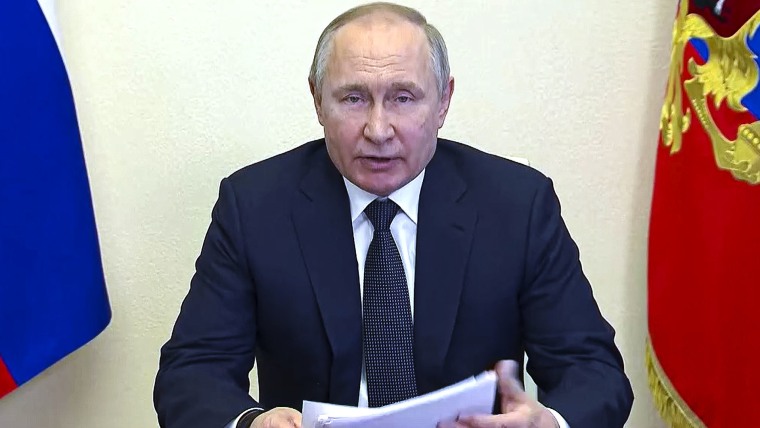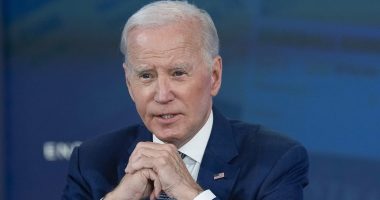LONDON — Daria Leshchenko said a close friend, a progressive in Moscow who fought for women’s rights in Russia, doesn’t speak to her anymore.
Despite their hourslong discussions about their home country’s invasion of Ukraine over the past few weeks, Leshchenko said she was shocked when her friend recently posted a message of support for President Vladimir Putin on social media and stopped responding.
Leshchenko, 24, works in London now but kept in touch with peers prior to the war. Since the invasion began, those dynamics have changed and relationships have started to unravel, she said.
“I don’t have many friends back in Russia to talk to anymore after these weeks, and I had plenty of them before,” she said.
That is a challenge for a growing number of Russian expatriates living in the West.
In the wake of Putin calling Russians who live abroad “scum” and “traitors” in a speech last week, conversations they manage to have with relatives and friends back home have grown tense or they avoid the topic of the war altogether. Numerous Russians have fled the country as a result of the invasion and the crackdown, likely for good, but the views of those still in Russia have hardened in support of the Kremlin, as years of anti-West propaganda get cemented in the country’s new reality.
Leshchenko said talking to friends back home is increasingly difficult as the Kremlin takes further hold of the media and lines of communication. Those who haven’t fled the country refuse to talk to her about the conflict, blame the West and the U.S. or say they may not like the war, but they feel they must support the regime and the military.
Another friend of Leshchenko’s in Russia, who never shared an interest in politics before, asked her about the West’s views and seemed curious to learn more. But then the friend argued that Russian attacks, such as the bombardment of a maternity hospital in Mariupol, were staged by the West. She insisted the woman photographed by The Associated Press being evacuated from the hospital was a prostitute and wore makeup to look as though she was in a bombing — a recent line of Russian propaganda.
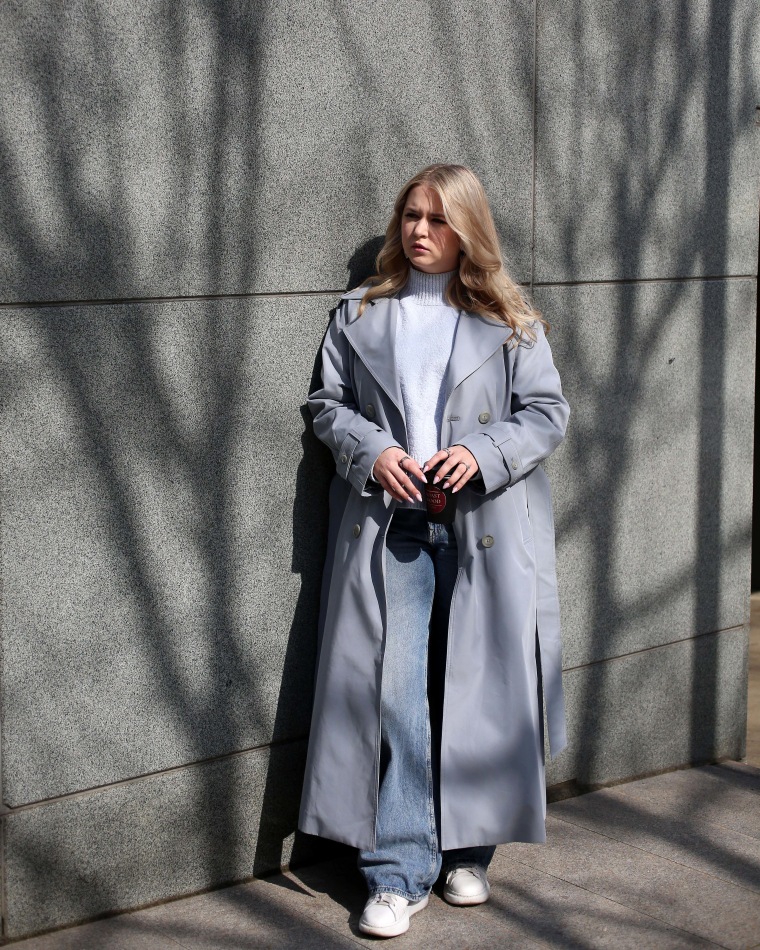
Meanwhile, Russians who oppose Putin and his regime are, for the most part, growing quiet or fleeing the country — and that has not gone unnoticed in Moscow.
Russian media reported that Sergey Plugotarenko, head of the Russian Association for Electronic Communications, told the Duma on Tuesday that his organization believed 50,000 to 70,000 information technology specialists had fled the country since the war started, largely for Turkey, the United Arab Emirates, Armenia, Georgia and the Baltic states. The only thing keeping more from leaving was the high price of airline tickets and the financial difficulties of navigating international sanctions.
His group forecast that “between 70,000 to 100,000 people will leave in April” from Russia, he testified. “These are only the IT people.”
Those figures from just one industry indicate a potential explosion of Russians who are departing their homeland — likely never to return or see their families again.
Russians who are able to afford the costs of leaving are traveling to countries such as Israel or Turkey, which remain open to Russian flights and do not require visas.
“There’s no going back. Until he [Putin] does leave, the entire middle class and intelligentsia and liberal-oriented class of people in Moscow and Russia will have to leave,” said Vladislav Davidzon, a fellow at the Atlantic Council’s Eurasia Center. “There’s nothing to be done about it. Putin has brought us to this point.”
For his part, Davidzon, a Russian by birth who has lived in Ukraine, ensured there was no way for him to return: He burned his Russian passport in front of his country’s embassy in Paris last week in protest against Putin’s invasion and renounced his citizenship, which he said he has kept quiet from his Ukrainian friends prior to this moment.
Davidzon said he hoped to demonstrate his complete rejection of the state and noted the deep effects this conflict will have on the country for years to come. Russia, he said, is now facing a massive brain drain.
“The people who will be the losers in this are going to be ordinary Russians: pensioners, the working class, people on a budget,” he said. “Those in the middle class are going to suffer but the ordinary Russians, especially those whose children make up the conscription class — undereducated young men from the provinces who don’t have the same privileges and educational opportunities that I have had — those are people who are really suffering in all this.”
One Muscovite, a Russian who fled the country on Thursday and asked to remain anonymous out of fear that the government would target his family, wasn’t able to leave immediately after flights to Istanbul nearly quadrupled in price. He got a ticket for a week later instead, leaving his parents and siblings behind. He said he was applying for a visa to travel to London and hoped to earn enough money there for his family to eventually join him.
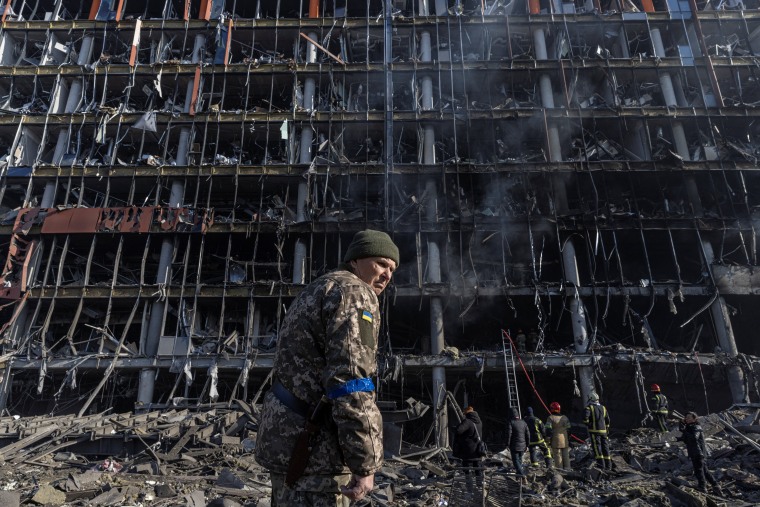
“When I was packing, it’s like, what do you take if you know you probably won’t come back?” he said over the phone while on a bus traveling through Istanbul. “I took a whole day off to just spend in my room and look at things. At first I just packed essentials, but then I was looking at items with memories: small mementos, postcards, little things. I picked up cinema tickets I had kept and thought, what if I still want to look at them in a couple years? That was really emotional.”
He said he never paid much attention to politics before Russia invaded Ukraine. Then, some of his friends who had signed a letter protesting the war were visited by police. Others were arrested.
“We’re not getting bombed. We don’t necessarily have friends dying. Obviously, the situation for Ukrainian people and Ukraine is much worse at the moment, but life has changed for us drastically,” he said. “You have plans for tomorrow, next week, next year, but now the economy has crashed, the work is gone and, just like, where do we go from here?”
In recent weeks, he said, he had found himself watching videos posted by a Russian political scientist Ekaterina Schulmann, a noted Kremlin critic.
The former Moscow resident said Schulmann, who was a member of Putin’s Presidential Council for Civil Society and Human Rights until he dismissed her in 2019, described some Russian reactions perfectly when she said in a recent video that a “rather natural reaction to fear in a scary situation is to join the strong. Reaction to an aggression is to join the aggressor.”
Many friends of his who had changed their views had done so out of fear, he said. As Schulmann added in the video, he explained, the desire is to receive protection from the state or “to at least act in a way that won’t get you punished, so that the looming threat wouldn’t affect you personally.”
Russian expats who spoke to NBC News also emphasized that Westerners, particularly Americans, don’t fully grasp the ongoing undercurrent of anti-Western and anti-American sentiment that pervades public opinion there.
The Kremlin and many Russians view this as a war with the West and the U.S. That might surprise many Westerners, but some experts argue it is a defining feature of Russia’s worldview.
In his book “The Return of the Russian Leviathan,” Sergei Medvedev, a Russian social sciences professor at Moscow’s Higher School of Economics, wrote that “Geopolitics in today’s Russia is simply an ideology that justifies imperial ambitions and the state’s priority over the individual in the allegedly eternal confrontation between Russia and the West in the battle for resources.”
Leshchenko said that has been true for as long as she can remember. Americans and Westerners may believe they’re not involved, but Russia views the U.S. and NATO as the actual threat they are fighting in Ukraine.
“Russians often blame the West for most things,” she said. “Any time there was a problem within the country, who do you think was blamed? Usually America. And that’s kind of what I grew up with. This is not something new: It has always been there.”
Source: | This article originally belongs to Nbcnews.com

